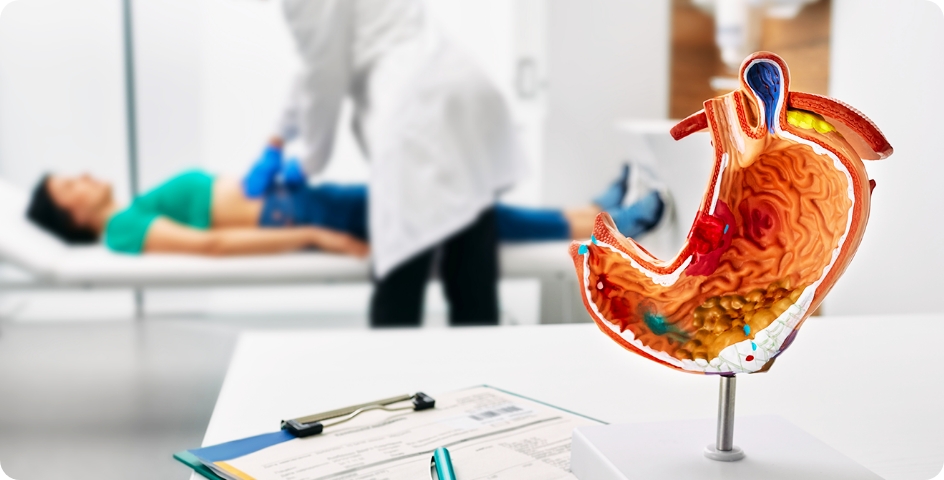Gastric Cancer Treatment in Turkey
Healthy Türkiye helps you find the best gastric cancer treatment in Turkey at affordable prices and adopts a 360-degree service approach in all areas of health through affiliated hospitals.
- Medical Treatment
- Cancer Treatment in Turkey
- Image Guided Radiotherapy in Turkey
- Image-Guided Radiosurgery in Turkey
- Intensity-Modulated Radiation Therapy in Turkey
- Kidney Cancer Treatment in Turkey
- Leukemia Treatment in Turkey
- Liver Cancer Treatment in Turkey
- Lung Cancer Treatment in Turkey
- Lymphoma Treatment in Turkey
- Bladder Cancer Treatment in Turkey
- Bone Marrow Transplant in Turkey
- Brachytherapy in Turkey
- Brain Cancer Treatment in Turkey
- Breast Cancer Treatment in Turkey
- Cervical Cancer Treatment in Turkey
- Chemotherapy in Turkey
- Colon Cancer Treatment in Turkey
- Hormonal Therapy in Turkey
- Bone Cancer Treatment in Turkey
- Endometrial Cancer Treatment in Turkey
- Gastric Cancer Treatment in Turkey
- Gene Therapy in Turkey
- Melanoma Treatment in Turkey
- Mesothelioma Treatment in Turkey
- Metastatic Cancer Treatment in Turkey
- Mouth Cancer Treatment in Turkey
- Neuroblastoma Treatment in Turkey
- Oral Cancer Treatment in Turkey
- Ovarian Cancer Treatment in Turkey
- Pancreatic Cancer Treatment in Turkey
- Photodynamic Therapy in Turkey
- Proton Therapy in Turkey
- Sarcoma Treatment in Turkey
- Skin Cancer Treatment in Turkey
- Stereotactic Body Radiation Therapy in Turkey
- Targeted Therapy in Turkey
- Testicular Cancer Treatment in Turkey
- Throat Cancer Treatment in Turkey
- Thyroid Cancer Treatment in Turkey
- Uterine Cancer Treatment in Turkey
- Volumetric-Modulated Arc Therapy in Turkey
- Prostate Cancer Treatment in Turkey
- Robotic Radical Prostatectomy Surgery in Turkey
- Hemato-Oncology Treatment in Turkey
- Skin Cancer Malignant Melanoma Treatment in Turkey
- Colorectal Cancer Treatment in Turkey
- Radiotherapy in Turkey
- Immunotherapy in Turkey
- TIL Therapy in Turkey
- TCR-T Therapy in Turkey
- CAR NK Cell Therapy in Turkey
- Gene Editing Therapy in Turkey
- Dendritic Cell Vaccines in Turkey
- Oncolytic Virus Therapy in Turkey
- NK-92 Cell Therapy in Turkey
- Cytokine Therapy in Turkey
- Bispecific T-cell Engager in Turkey
- Macrophage-Based Therapy in Turkey
- IPSC-Derived Immunotherapies in Turkey
- Glossectomy in Turkey
- Regulatory T Cell Therapy in Turkey
- Gamma Delta T Cells Therapy in Turkey
- Homepage
- Medical Treatment
- Gastric Cancer Treatment in Turkey

About Gastric Cancer Treatment in Turkey
Stomach cancer treatment, commonly known as gastric cancer treatment in Turkey, focused on the world’s most frequent malignancy. This condition is caused by the proliferation of cancerous and malignant cells in the stomach’s inner lining. Stomach cancer does not spread quickly; rather, it spreads slowly over time. Some pre-cancerous alterations occur before genuine cancer occurs. However, because these early changes rarely cause symptoms, they frequently go undiagnosed in the early stages, when treatment is easiest.
Stomach cancer treatment should not be confused with other types of abdominal cancer treatment or esophageal cancer treatment. Other cancers that can develop in the abdomen include cancers of the big and small intestines, liver, and pancreas. These malignancies may have varied symptoms, prognoses, and treatment options.
Squamous and small cell carcinoma, as well as leiomyosarcoma, are some other kinds of stomach cancer. These cancers are extremely rare. Gastric cancer can spread through the stomach wall and invade surrounding organs. It spreads quickly to lymph arteries and lymph nodes. It can travel via the bloodstream and spread to organs such as the liver, lungs, and bones in an advanced stage. Typically, people diagnosed with stomach cancer have already undergone metastases or may develop it in the future.
Healthy Türkiye recognizes the necessity and problems that people who travel to another nation for treatment confront. The best health teams in Turkey assist patients and their families throughout the procedure. It also provided language translators, local transportation, and assistance with travel and accommodation arrangements.

Gastric Cancer Treatment Procedure in Turkey
Gastric cancer is a condition in which malignant or cancerous cells grow in the stomach lining. The risk of stomach cancer is affected by age, food, and stomach illnesses. Indigestion, discomfort, or stomach pain are indications of stomach cancer. Healthy Türkiye provides you to find the best hospitals and clinics. Other health professionals in gastric cancer treatment in Turkey include physician assistants, oncology nurses, social workers, pharmacists, consultants, dieticians, and others.
Surgery, radiation, chemotherapy, targeted therapy, and immunotherapy can all be used to treat stomach cancers. The following are the most prevalent types of stomach cancer treatment. Your treatment plan may also include treatment for symptoms and side effects, which is an important aspect of cancer care.
Stomach cancer treatment in Turkey is less expensive than in other countries such as the United States, the United Kingdom, Australia, and many European countries. Turkey is a highly sought-after medical vacation destination due to its affordable health packages, high-quality treatment, and availability of cutting-edge equipment.
The cost, however, varies based on criteria such as the type of treatment or therapies required, the hospital chosen, the doctor’s experience, the technology and technique employed, and many more. To learn more and receive accurate information on stomach cancer treatment in Turkey, please contact Healthy Türkiye. As a recognized platform, Healthy Türkiye offers an efficient and painless treatment procedure for overseas patients.

We Care About Your Health
Healthy Türkiye provides the best for your health and comfort. You will feel privileged with us.
7/24 Quality Personal Assistance Throughout Your Journey
Customizable for You All-Inclusive Packages
Get the Right Advice for your Health
Types of Gastric Cancer Treatment in Turkey
There are several types of treatments, sometimes known as therapies, that are used to treat stomach cancer. When deciding on a treatment plan, you should consult with your doctor to see if clinical trials are a possibility. A clinical trial is a research study that assesses a novel therapeutic technique. Clinical trials let doctors determine whether a novel treatment is safe, effective, and maybe superior to the current treatment. Clinical trials can be used to evaluate a novel drug, a new combination of standard treatments, or new doses of standard pharmaceuticals or other treatments. Clinical trials are an option for cancer patients at various stages. Your doctor can assist you in considering all of your treatment options.
Different sorts of specialists frequently collaborate in cancer care to develop a patient’s overall treatment plan, which mixes many types of therapy. This is referred to as a multidisciplinary team. Physicians, physician assistants, nurse practitioners, oncology nurses, social workers, pharmacists, counselors, nutritionists, and other health care professionals make up cancer care teams.
The type and stage of cancer, potential side effects, and the patient’s preferences and overall health all influence treatment options and recommendations. To treat stomach cancer, a combination of therapy is frequently employed. The most frequent types of stomach cancer therapies are mentioned below. Treatment for symptoms and side effects may also be part of your treatment plan, which is an important element of cancer care.
Surgery: Gastrectomy is an operation in which all or part of the stomach, as well as some surrounding tissue, is removed. Sometimes, lymph nodes around the stomach are removed for a biopsy test to look for cancer cells and assess the stage. Surgery is considered the only true opportunity for a cure for people with stage zero through stage three stomach cancer.
Chemotherapy: This treatment entails using one or more anticancer medications to eliminate or shrink cancer cells. It is a systemic treatment that has the potential to target cancer cells throughout the body. The therapy can be utilized before and after surgery, as well as for tumors that have metastasized or spread to other organs. Prior to surgery, chemotherapy with or without radiation is sometimes considered to reduce the tumor. It can also be used to prepare an inoperable tumor for surgery, which is known as neoadjuvant therapy.
Radiation therapy: It employs high-energy radiation to kill cancer cells while also shrinking tumor size. This treatment can be used in conjunction with chemotherapy and surgery, and it is sometimes used to ease symptoms in individuals with localized cancer. Radiation therapy is used to treat cancer that has spread to another section of the body and has caused localized symptoms.
This is a traumatic diagnosis, and for some people, discussing advanced cancer is tough. However, it is critical to communicate openly and honestly with your healthcare team in order to express your views, preferences, and concerns. The healthcare team has specialized skills, expertise, and information to assist patients and their families. It is critical to ensure that a person is physically comfortable, pain-free, and emotionally supported.
Types of Gastric Cancer
Stomach cancer occurs when cells start behaving abnormally, growing and proliferating uncontrollably. The stomach, a hollow organ that collects nutrition and breaks it down, has five different parts—from the top of the stomach, which links to the esophagus, to the bottom of the stomach, which connects to the small intestine: The type of stomach cancer you have is based on the type of cell where your cancer started. Examples of stomach cancer types are:
Adenocarcinoma (stomach cancer): It begins in cells that produce mucous. This is the most common type of gastric cancer. Almost all cancers that begin in the stomach are adenocarcinomas.
Gastrointestinal stromal tumors (GIST): GIST begins in special nerve cells that are found in the wall of the stomach and other digestive organs. Gastrointestinal stromal tumors is a type of soft tissue sarcoma. It is diagnosed sometimes when a gastroscopy was operated on.
Carcinoid tumors are cancers that grow in the neuroendocrine cells. Neuroendocrine cells are found in many places in the body. They do some nerve cell functions and some of the work of cells that make hormones. A carcinoid tumor is a type of neuroendocrine tumor.
Lymphoma is cancer that develops in immune system cells. The body’s immune system fights germs. Lymphoma can sometimes develop in the stomach if the body sends immune system cells to the stomach. This might occur if the body is trying to fight off an infection. Most lymphomas that begin in the stomach are a type of non-Hodgkin’s
If you’ve been diagnosed with stomach cancer (also known as gastric cancer), your cancer care team will discuss your treatment options with you. It’s crucial to weigh the benefits of each treatment option against the possible risks and side effects. The majority of stomach cancers found by specialists today have progressed past the early stage. Because of this, almost all patients with stomach cancer will need some type of surgery to treat the disease, either traditional open surgery or minimally invasive surgery.
Diagnosis for Gastric Cancer Treatment in Turkey
In Turkey, if your specialist thinks you may have stomach cancer, you will be referred for further tests. The main test is an endoscopy (also named a gastroscopy). The specialist will use a thin, flexible tube with a camera (endoscope), which passes into the mouth, down the throat, and the esophagus into the stomach in order to look at the digestive tract. If any suspicious-looking sites are detected, a small amount of tissue from the stomach lining might be removed (biopsy) and examined under a microscope. Less commonly operated is an endoscopic ultrasound, where the endoscope has an ultrasound probe at the end.
Stomach cancer doesn’t usually cause symptoms in its early stages. When they happen, symptoms might include indigestion and pain in the upper part of the belly. Symptoms may not happen until the cancer is advanced. Later stages of stomach cancer can cause symptoms such as feeling very tired, losing weight without trying, vomiting blood, and having black stools. Some stomach cancer systems are trouble swallowing, tummy pain, feeling bloated after eating, feeling full after eating small amounts of food, not feeling hungry when you would expect to be hungry, heartburn, and indigestion.
After being diagnosed with stomach cancer, you might feel shocked, upset, anxious, or confused. A diagnosis of stomach or oesophageal cancer affects people differently. For most, it will be a difficult time, but some people manage to continue with their normal daily activities. You may find it helpful to talk about your treatment options with your specialists, family, and friends. Ask questions and seek as much information as you feel you want. It is up to you to decide how involved you want to be in your treatment. Healthy Türkiye will support you all through the cancer treatment process.
Gastric Cancer Treatment Recovery
Depending on the size, location, and spread of the tumor, many surgical methods may be used to treat stomach (gastric) cancer. The type of surgery done, as well as the patient’s age and overall condition, will all have an impact on recovery time. Some patients, for example, have surgery to remove the entire stomach known as total gastrectomy which will require a lengthier recovery period and more difficult postoperative care than a partial gastrectomy, which includes removing only a section of the stomach and can sometimes be performed endoscopically.
Any sort of stomach cancer surgery is a major and demanding procedure. Many patients who have a partial gastrectomy stay in the hospital for three to five days after the procedure, whereas a whole gastrectomy may necessitate an inpatient stay of a week or more. Most patients should relax as much as possible after being released and avoid vigorous activity for many weeks. Following stomach cancer surgery, it is critical to carefully follow your doctor’s customized instructions. There are numerous possible side effects and consequences following surgery, so report any concerns as soon as possible.
Even if you have completed treatment, your doctors will want to keep a careful eye on you. It is critical that you attend all of your follow-up appointments. During these sessions, your doctors will ask you questions about any problems you are having and may perform exams, lab tests, or imaging tests to search for symptoms of stomach cancer or side effects from therapy.
Almost every cancer treatment has potential negative effects. Some may only endure for a short time, while others may last much longer. Your medical visits are an excellent opportunity for you to ask questions and discuss any changes, difficulties, or other concerns you may have. Following therapy, most doctors recommend follow-up appointments every 3 to 6 months for the first few years, then less frequently thereafter. These appointments normally include a physical exam and a discussion of any symptoms you’re experiencing. At this time, lab tests and other exams, such as an upper endoscopy, may be performed or scheduled. Imaging procedures, such as CT scans, are not normally required at every appointment, but they may be performed if you have any concerning symptoms or physical findings on your checkup.

2026 Cost of Gastric Cancer Treatment in Turkey
All types of medical attention like gastric cancer treatment are very affordable in Turkey. Many factors are also included in determining the cost of gastric cancer treatment in Turkey. Your process with Healthy Türkiye will last from the time you decide to have gastric cancer treatment in Turkey until the time you are fully recovered even if you are back home. The exact gastric cancer treatment procedure cost in Turkey depends on the type of operation involved.
The cost of gastric cancer treatment in Turkey does not demonstrate many variations in 2026. Compared to costs in developed countries like the United States or the UK, gastric cancer treatment costs in Turkey are relatively low. So, it’s no wonder patients from across the world visit Turkey for gastric cancer treatment procedures. However, the price is not the only factor affecting choices. We suggest looking for hospitals that are safe and have gastric cancer treatment reviews on Google. When people decide to seek medical help for gastric cancer treatment, they will not only have had low-cost procedures in Turkey, but also the safest and best treatment.
At clinics or hospitals contracted with Healthy Türkiye, patients will receive the best gastric cancer treatment from specialist doctors in Turkey at affordable rates. Healthy Türkiye teams provide medical attention gastric cancer treatment procedures and high-quality treatment to patients at a minimum cost. When you contact Healthy Türkiye assistants, you can get free information about the cost of gastric cancer treatment in Turkey and what this cost covers.
The cost of gastric cancer treatment in the UK is between £25,000 to £120,000.
The cost of gastric cancer treatment in the USA is between $50,000 to $200,000.
The cost of gastric cancer treatment in Turkey is between $15,000 to $70,000.
Price of Gastric Cancer Treatment in the UK?
Price of Gastric Cancer Treatment in the USA?
Price of Gastric Cancer Treatment in Turkey?
Why Is Gastric Cancer Treatment Cheaper in Turkey?
One of the main considerations before traveling abroad for gastric cancer treatment is the cost-effectiveness of the whole process. Many patients think that when they add flight tickets and hotel expenses to their gastric cancer treatment costs, it will become very expensive to travel, which is not true. Contrary to popular belief, round-trip flight tickets to Turkey for gastric cancer treatment can be booked very affordably.
In this case, assuming you are staying in Turkey for your gastric cancer treatment, your total travel expense of flight tickets and accommodation will only cost less than any other developed country, which is nothing compared to the amount that you are saving.
The question “Why is gastric cancer treatment cheaper in Turkey?” is so common between patients or people simply curious about getting their medical treatment in Turkey. When it comes to gastric cancer treatment prices in Turkey, there are 3 factors allowing cheaper prices:
The currency exchange is favorable for whoever looking for gastric cancer treatment has a euro, dollar, or pound;
The lower cost of living and cheaper overall medical expenses such as gastric cancer treatment;
For gastric cancer treatment, incentives are given by the Turkish Government to medical clinics working with international clients;
All these factors allow for cheaper gastric cancer treatment prices, but let’s be clear, these prices are cheaper for people with strong currencies (as we said, euro, dollar, Canadian dollar, pound, etc).
Every year, thousands of patients from all over the world come to Turkey to get gastric cancer treatment. The success of the healthcare system has increased in recent years, especially for gastric cancer treatment. It’s easy to find well-educated and English-speaking medical professionals in Turkey for all kinds of medical treatment such as gastric cancer treatment.

Why Choose Turkey for Gastric Cancer Treatment?
Turkey is a common choice among international patients seeking advanced gastric cancer treatment. Turkey’s health procedures are safe and effective, with a high success rate, like gastric cancer treatment. The increasing demand for high-quality gastric cancer treatment at affordable prices has made Turkey a popular medical travel destination. In Turkey, gastric cancer treatment is performed by highly experienced and trained doctors with the most advanced technology in the world. Gastric cancer treatment is done in Istanbul, Ankara, Antalya, and other major cities. The reasons for choosing gastric cancer treatment in Turkey are as follows:
High-quality hospitals: Joint Commission International (JCI) accredited hospitals have dedicated gastric cancer treatment units that are specially designed for patients. International and national strict protocols provide effective and successful gastric cancer treatment for patients in Turkey.
Qualified experts: The expert teams include nurses and specialist doctors, together to carry out gastric cancer treatment according to the patient’s needs. All the included doctors are highly experienced in performing gastric cancer treatment.
Affordable price: The cost of gastric cancer treatment in Turkey is affordable compared to Europe, the USA, the UK, Singapore, Australia, etc.
The high success rate: Highly experienced specialists, the best available technology, and stringently followed safety guidelines for post-operative care of the patient, resulting in a high success rate for gastric cancer treatment in Turkey.
Is Gastric Cancer Treatment Safe in Turkey?
Did you know Turkey is one of the most visited destinations for gastric cancer treatment in the world? It is ranked as one of the most popular tourist destinations for gastric cancer treatment. Over the years, it has also come to be a very popular medical tourism destination, with many tourists coming in for gastric cancer treatment. There are so many reasons why Turkey stands out as a leading destination for gastric cancer treatment. Because Turkey is both safe and easy to travel to, with a regional airport hub and flight connections to pretty much everywhere, it is preferred for gastric cancer treatment.
The best hospitals in Turkey have experienced medical staff and specialists who have performed thousands of medical services, such as gastric cancer treatment. The Ministry of Health controls all procedures and coordination related to gastric cancer treatment in accordance with the law. Over many years, the greatest progress in medicine has been observed in the field of gastric cancer treatment. Turkey is known among foreign patients for its great opportunities in the area of gastric cancer treatment.
To emphasize, besides the price itself, the key factor in selecting a destination for gastric cancer treatment is certainly the standard of medical services, the hospital staff’s high level of expertise, hospitality, and the safety of the country.
All-Inclusive Packages for Gastric Cancer Treatment in Turkey
Healthy Türkiye offers all-inclusive packages for gastric cancer treatment in Turkey at much lower prices. Extremely professional and experienced doctors and technicians carry out the high quality gastric cancer treatment. The cost of gastric cancer treatment in European countries can be quite expensive, especially in the UK. Healthy Türkiye provides cheap all-inclusive packages for a long and short stay of gastric cancer treatment in Turkey. Because of many factors, we can provide you with many opportunities for your gastric cancer treatment in Turkey.
The price of gastric cancer treatment differs from other countries due to medical fees, staff labor prices, exchange rates, and market competition. You can save much more in gastric cancer treatment compared to other countries in Turkey. When you purchase a gastric cancer treatment all-inclusive package with Healthy Türkiye, our healthcare team will present a list of hotels for you to choose from. In gastric cancer treatment travel, you will have the price of your stay included in the all-inclusive package cost.
In Turkey, when you purchase gastric cancer treatment all-inclusive packages through Healthy Türkiye, you will always receive VIP transfers. These are provided by Healthy Türkiye, which is contracted with highly qualified hospitals for gastric cancer treatment in Turkey. Healthy Türkiye teams will organize everything about gastric cancer treatment for you and have you picked up from the airport and safely brought to your accommodation. Once settled in the hotel, you will be transferred to and from the clinic or hospital for gastric cancer treatment. After your gastric cancer treatment has been successfully completed, the transfer team will return you to the airport in time for your flight home. In Turkey, all packages of gastric cancer treatment can be arranged upon request, which relaxes the minds of our patients. You can reach out to Healthy Türkiye for everything you need to know about gastric cancer treatment in Turkey.
The Best Hospitals in Turkey for Gastric Cancer Treatment
The best hospitals in Turkey for gastric cancer treatment are Healthy Türkiye, Memorial Hospital, Acıbadem International Hospital, and Medicalpark Hospital. These hospitals attract patients from all over the world seeking gastric cancer treatment due to their affordable prices and high success rates.
Best Doctors and Surgeons in Turkey for Gastric Cancer Treatment
The best doctors and surgeons in Turkey for gastric cancer treatment are highly skilled professionals who offer specialized care and advanced procedures. With their expertise and state-of-the-art techniques, these specialists ensure that patients receive high-quality gastric cancer treatment and achieve optimal health results.

Frequently Asked Questions
For example, a diet high in smoked or salted foods, processed meat, and low in vegetables is a risk factor for gastric cancer, as are drinking alcohol and smoking. Helicobacter pylori, a microorganism that affects the inner lining of the stomach, also contributes to cancer development.
Stomach cancer usually affects older people. The average age of people when they are diagnosed is 65. About 6 out of every 10 people diagnosed with stomach cancer each year are 68 or older. The lifetime risk of developing stomach cancer is higher in men (about 1 in 96) than in women.
Gastric cancer happens most commonly in people older than 55. Most people diagnosed with gastric cancer are in their 60s and 70s. Gender. Men are twice as likely to develop stomach cancer as women.
Stomach cancer, also called gastric cancer, begins when cells in the stomach start to grow out of control.
A blood test can’t diagnose stomach cancer. Blood tests can give your provider clues about your health. For example, tests to measure your liver’s health might reveal problems caused by stomach cancer that spreads to the liver. Another type of blood test looks for pieces of cancer cells in the blood
The most common place for gastric cancer to spread is to the liver. It may also spread to the lungs, to lymph nodes, or to the tissue lining the abdominal cavity (peritoneum).
About 95% of the time, gastric cancer begins in your stomach lining and progresses slowly. Untreated, it can form a mass tumor and grow deeper into your stomach walls. The tumor might spread to nearby organs like your liver and pancreas.
The most common type of gastric cancer is called adenocarcinoma.
People with certain types of cancer may have swelling in the abdomen (belly) that causes weight gain.
Gastric cancer can present itself in many different ways, such as difficulty swallowing, feeling bloated after eating, feeling full after only consuming a small amount of food, heartburn, indigestion, nausea, stomach pain, unintentional weight loss, and vomiting.
